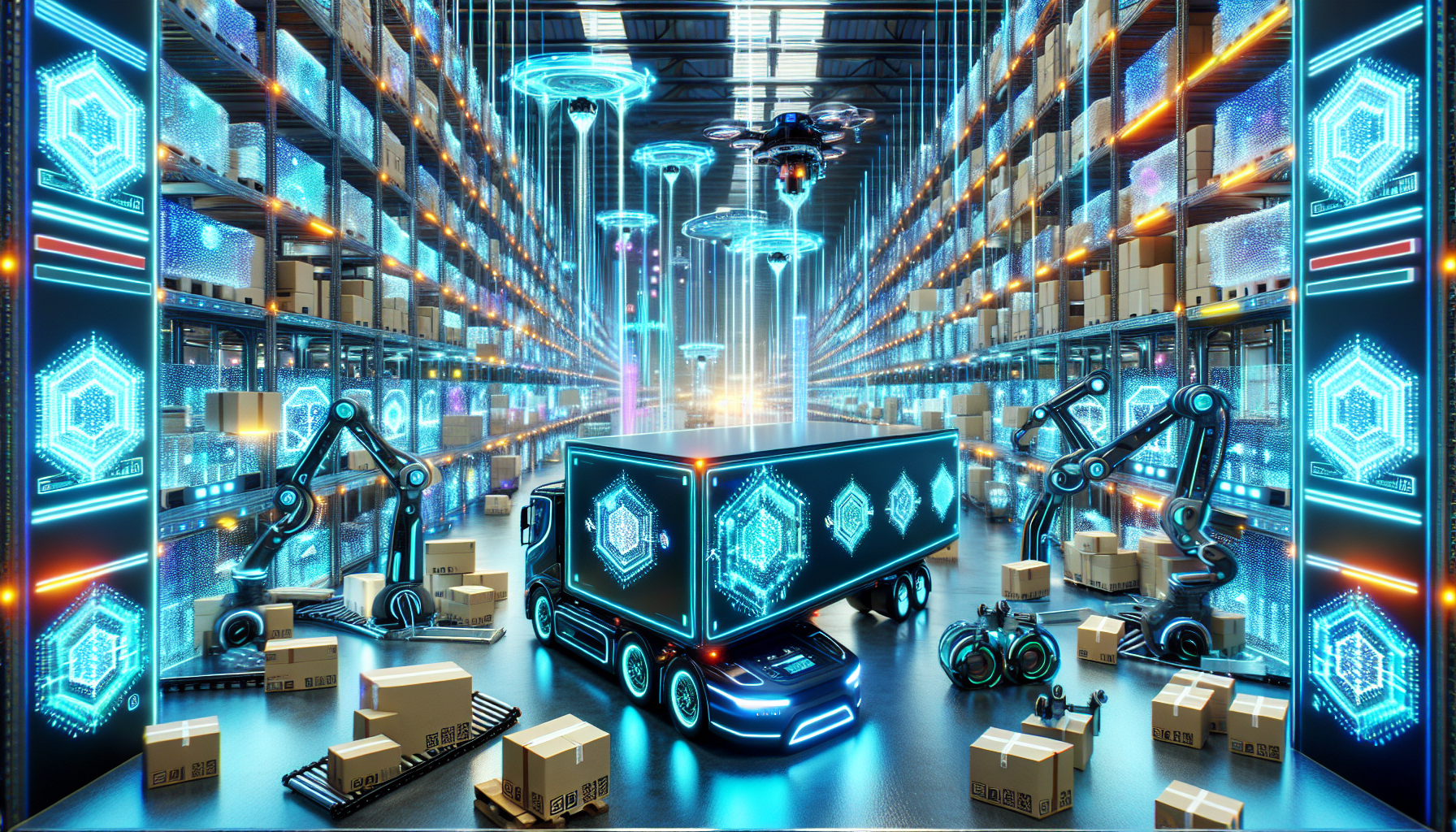Blockchain for Logistics: Transforming the Moving Industry
We're witnessing a revolution in the logistics industry, and blockchain is at the forefront of this transformation.


We're witnessing a revolution in the logistics industry, and blockchain is at the forefront of this transformation. As professionals in the field, we've seen how blockchain for logistics is reshaping the way we handle supply chains, inventory management, and overall logistics operations. This groundbreaking technology is not just a buzzword; it's causing a revolution in how we track, manage, and optimize our entire logistics network.
In this article, we'll explore how blockchain is changing the game for logistics automation and supply chain optimization. We'll dive into the basics of blockchain technology to help logistics professionals understand its potential. Then, we'll look at how it's improving supply chain visibility and making inventory management more efficient. We'll also discuss its role in fleet management and how it works with other technologies like IoT and AI to create smarter logistics solutions. By the end, you'll have a clear picture of how blockchain is set to shape the future of our industry.
Blockchain Fundamentals for Logistics Professionals
Defining blockchain for transportation
Blockchain for logistics is a game-changing technology that's reshaping how we handle supply chains and inventory management. At its core, blockchain is a decentralized, distributed digital ledger that records transactions across multiple computers. This structure ensures that once data is entered, it can't be altered without changing all subsequent blocks, making it highly secure and tamper-resistant.
In the context of transportation and logistics, blockchain serves as a powerful tool to track and authenticate orders, improving service quality for transport and delivery companies. It minimizes paperwork, enhances information flow, and streamlines communication throughout the supply chain.
Core components and architecture
The architecture of blockchain for logistics automation consists of several key components. First, we have nodes, which are the backbone of the network. These nodes store, verify, and broadcast transactions, ensuring the integrity of the system. There are different types of nodes, including full nodes that store the entire blockchain and light nodes that store only a subset for efficiency.
Another crucial component is the consensus mechanism, which ensures all nodes agree on the current state of the blockchain. This is vital for maintaining the accuracy and reliability of the shared ledger. Smart contracts are also an integral part of blockchain architecture, allowing for automated, self-executing agreements when predefined conditions are met.
Data storage solutions are essential to handle the large volumes of transactions in logistics. Blockchain offers both on-chain and off-chain storage options, balancing security and scalability needs. Network protocols govern communication between nodes, ensuring data is transmitted accurately and securely.
Benefits over traditional systems
Blockchain has a significant impact on supply chain optimization, offering several advantages over traditional systems. One of the key benefits is increased transparency. With blockchain, we can track updates across all processes, providing real-time information about a product's lifecycle, from production to delivery.
Security is another major advantage. The decentralized nature of blockchain eliminates a single point of failure, making it highly resistant to fraud and attacks. This enhanced security is crucial for protecting sensitive logistics data and ensuring the integrity of transactions.
Blockchain also improves traceability in the supply chain. We can now track products from their origin to the end consumer with unprecedented accuracy. This capability is particularly valuable for industries like pharmaceuticals and food, where product authenticity and safety are paramount.
Efficiency is greatly enhanced through blockchain implementation. It reduces the need for intermediaries, speeds up transactions, and automates many processes through smart contracts. This automation leads to faster approvals, reduced processing times, and overall improved logistics operations.
Lastly, blockchain fosters greater trust among all participants in the supply chain. With a shared, immutable record of transactions, disputes can be resolved more easily, and accountability is increased. This trust is essential for building stronger relationships between suppliers, manufacturers, and customers in the complex world of logistics.
Transforming Supply Chain Visibility and Traceability
End-to-end tracking capabilities
We're witnessing a revolution in supply chain optimization with blockchain technology. This innovative solution has a significant impact on inventory management and logistics automation. With blockchain, we can now track products from source to shelf, providing complete visibility throughout the entire supply chain.
One of the key advantages of blockchain for logistics is its ability to create an immutable, transparent record of every transaction. This means we can trace the journey of a product at any point, from raw material sourcing to final delivery. For instance, in the food industry, we can now track produce from the farm to the grocery store shelf in real time.
The end-to-end tracking capabilities of blockchain have drastically reduced the time it takes to identify the source of contamination in case of a recall. What used to take days or even weeks can now be done in seconds. This quick response time is crucial for ensuring consumer safety and minimizing economic losses.
Product authentication and provenance
Blockchain technology has also revolutionized how we authenticate products and verify their provenance. This is particularly important in industries where counterfeit goods are a significant concern, such as pharmaceuticals and luxury goods.
By assigning a unique digital identifier to each product and recording it on the blockchain, we can easily verify its authenticity. Consumers can simply scan a QR code or NFC tag with their smartphones to access the product's entire history on the blockchain. This level of transparency builds trust and helps prevent the circulation of counterfeit goods in the supply chain.
Recall management and safety compliance
When it comes to recall management and safety compliance, blockchain for logistics has proven to be a game-changer. In the event of a product recall, blockchain allows us to quickly identify and isolate affected batches, minimizing the scope and cost of the recall.
For example, in the pharmaceutical industry, blockchain helps companies comply with regulations like the U.S. Drug Supply Chain Security Act. By providing a complete, tamper-proof audit trail of a drug's journey through the supply chain, we can ensure its authenticity and safety.
Moreover, blockchain integration with IoT devices enhances our ability to monitor product quality throughout the supply chain. For perishable goods like fresh produce or temperature-sensitive medications, IoT sensors can record environmental conditions directly onto the blockchain. This real-time monitoring ensures that products remain within safe parameters during transit and storage.
In conclusion, blockchain technology is transforming supply chain visibility and traceability, offering unprecedented levels of transparency, efficiency, and security. As more companies adopt blockchain solutions, we're moving towards a future where supply chain optimization and logistics automation are the norm, benefiting businesses and consumers alike.
Optimizing Fleet Management with Blockchain
We've seen how blockchain for logistics has a significant impact on supply chain optimization, and now we're witnessing its transformative power in fleet management. This technology is revolutionizing how we handle vehicle tracking, maintenance, fuel consumption, and driver performance. Let's dive into these aspects and see how blockchain is changing the game for logistics automation.
Vehicle tracking and maintenance
Blockchain technology has given us a new level of transparency and security in vehicle tracking and maintenance. We now have a distributed digital ledger that provides tamper-proof records of our fleet's movements and maintenance history. This means we can track our vehicles in real-time and have access to their entire lifecycle data.
For instance, when a new piece of equipment joins our fleet, it's immediately "born" into the blockchain. Every quality control check, assembly inspection, and maintenance action is recorded as a new block in the chain, complete with time and date stamps. This creates an unalterable audit trail that's invaluable for warranty claims and liability protection.
What's more, this system allows us to share information seamlessly with manufacturers and other stakeholders. If a warranty issue comes up, it's much easier to verify whether any actions have been recorded that might void the warranty. This level of transparency has greatly improved our relationships with suppliers and reduced disputes.
Fuel consumption monitoring
One of the biggest challenges in fleet management is controlling fuel costs, which often make up a large portion of our budget. Blockchain has given us a powerful tool to optimize fuel management and combat fraud. We now have an immutable, transparent record of every fuel transaction.
Using blockchain, we can record the date, time, location, and amount of each fuel purchase. This detailed tracking allows us to identify any unusual patterns or discrepancies quickly. Moreover, we can use smart contracts to automate fuel payment handling, reducing the potential for errors or fraud.
This level of oversight has not only helped us cut costs but also improved our overall efficiency. We can now make data-driven decisions about route planning and vehicle assignments based on accurate fuel consumption data.
Driver performance and safety
Blockchain technology has also revolutionized how we manage driver data and performance. We now have a secure, centralized system for storing and managing drivers' licenses, certificates, and work records. This makes it much easier for us, as well as regulatory bodies, to access and verify this information.
We're using blockchain to log driver data and ensure that only certified drivers operate our vehicles. This has significantly boosted our security, compliance, and productivity. The centralized nature of blockchain-based driving records has also sped up our background check process, helping us make better hiring decisions and avoid employing drivers with problematic histories.
Furthermore, we can now track and record driver behavior and performance data in real-time. This allows us to identify areas for improvement and provide targeted training to our drivers. The result has been a noticeable improvement in safety standards across our fleet.
In conclusion, blockchain technology has transformed our approach to fleet management. From enhancing vehicle tracking and maintenance to optimizing fuel consumption and improving driver performance, it's given us the tools to make our operations more efficient, transparent, and secure. As we continue to integrate this technology into our logistics automation processes, we're excited to see how it will further revolutionize our industry.
Blockchain Integration with IoT and AI in Logistics
Synergies between blockchain and emerging technologies
We're witnessing a revolutionary transformation in logistics automation through the integration of blockchain with IoT and AI. This powerful combination is creating a comprehensive ecosystem where data flows seamlessly across various logistics processes. IoT devices generate vast amounts of real-time data, which is securely recorded on the blockchain. AI then analyzes this data to derive actionable insights, optimizing operations and enhancing decision-making capabilities.
The synergy between these technologies has a significant impact on supply chain optimization. Blockchain provides a decentralized and secure foundation, enhancing the reliability of data across multi-device IoT landscapes. This integration allows IoT's extensive network of connected devices to generate and securely transmit data, while AI leverages this information to make intelligent decisions, transcending simple automation and optimizing entire networks.
Real-world use cases and applications
In inventory management, IoT sensors monitor product conditions and locations in real-time. This data is recorded on the blockchain, creating an immutable and transparent ledger. AI algorithms then analyze this information to optimize inventory levels, predict demand, and streamline logistics operations.
For example, in the food industry, we can now track produce from farm to shelf in real-time. IoT devices monitor temperature and humidity during transit, with this data securely recorded on the blockchain. AI algorithms analyze this information to ensure optimal conditions are maintained, reducing spoilage and enhancing food safety.
In manufacturing, IoT devices monitor equipment performance, with data recorded on the blockchain. AI analyzes this information to predict maintenance needs, reducing downtime and extending equipment life. This integration has revolutionized how we approach predictive maintenance in logistics automation.
Enhancing decision-making and predictive analytics
The combination of blockchain, IoT, and AI has significantly enhanced our decision-making capabilities in logistics. AI's predictive analytics, combined with IoT's real-time data and blockchain's secure tracking, create a logistics network that is not only faster and more reliable but also more transparent to all stakeholders involved.
We can now anticipate potential supply chain disruptions before they occur. AI algorithms analyze historical data and real-time information from IoT devices to forecast potential issues. This allows us to take proactive measures, ensuring the smooth flow of goods and minimizing disruptions in our logistics operations.
Moreover, this integration has improved our ability to optimize routing and inventory management. AI analyzes data collected by IoT devices to streamline logistics processes, ensuring timely delivery and reducing overhead costs. The entire supply chain becomes more transparent with IoT devices tracking goods at every stage and blockchain recording this data securely.
In conclusion, the integration of blockchain with IoT and AI in logistics is not just a technological advancement; it's a strategic imperative. It's about building a logistics network that is not only efficient and secure but also adaptable and forward-thinking, ready to meet the challenges of tomorrow.
Conclusion
Blockchain technology is causing a revolution in the logistics industry, offering groundbreaking solutions to age-old challenges. Its integration with IoT and AI has a significant impact on supply chain optimization, enhancing transparency, security, and efficiency. This powerful combination enables real-time tracking, improved inventory management, and predictive analytics, leading to smarter decision-making and reduced operational costs.
As we look ahead, the potential of blockchain in logistics is vast and exciting. Its ability to create trust, streamline processes, and provide unparalleled visibility across the supply chain positions it as a key driver of innovation in the industry. To fully harness its potential, ongoing collaboration between technology providers, logistics companies, and regulatory bodies is crucial. This teamwork will pave the way for wider adoption and continued advancements in logistics automation.
FAQs
1. How is blockchain technology revolutionizing the logistics sector?
Blockchain technology is significantly transforming the logistics industry by enhancing the traceability of goods, streamlining freight operations, and reducing instances of fraud. It enables logistics companies to maintain transparent and immutable records of all supply chain activities, ensuring that each step is both verifiable and secure.
2. What role does blockchain play in the transportation industry?
In the transportation sector, blockchain technology is utilized to enhance billing and payment systems. It allows for transactions to be completed with lower fees and faster processing times. Additionally, blockchain enables both clients and companies to monitor vehicle movements in real time.
3. How is blockchain influencing the travel industry?
Blockchain technology introduces a decentralized framework to the travel industry, making booking processes more secure and less susceptible to fraud. Unlike traditional systems that involve multiple intermediaries, blockchain simplifies interactions and enhances security by reducing the number of involved parties.
4. In what ways will blockchain transform the supply chain industry?
Blockchain technology is set to revolutionize supply chains by enabling faster and more secure transactions, particularly for international dealings. It also supports the use of smart contracts that can execute transactions automatically, further streamlining payment processes.

